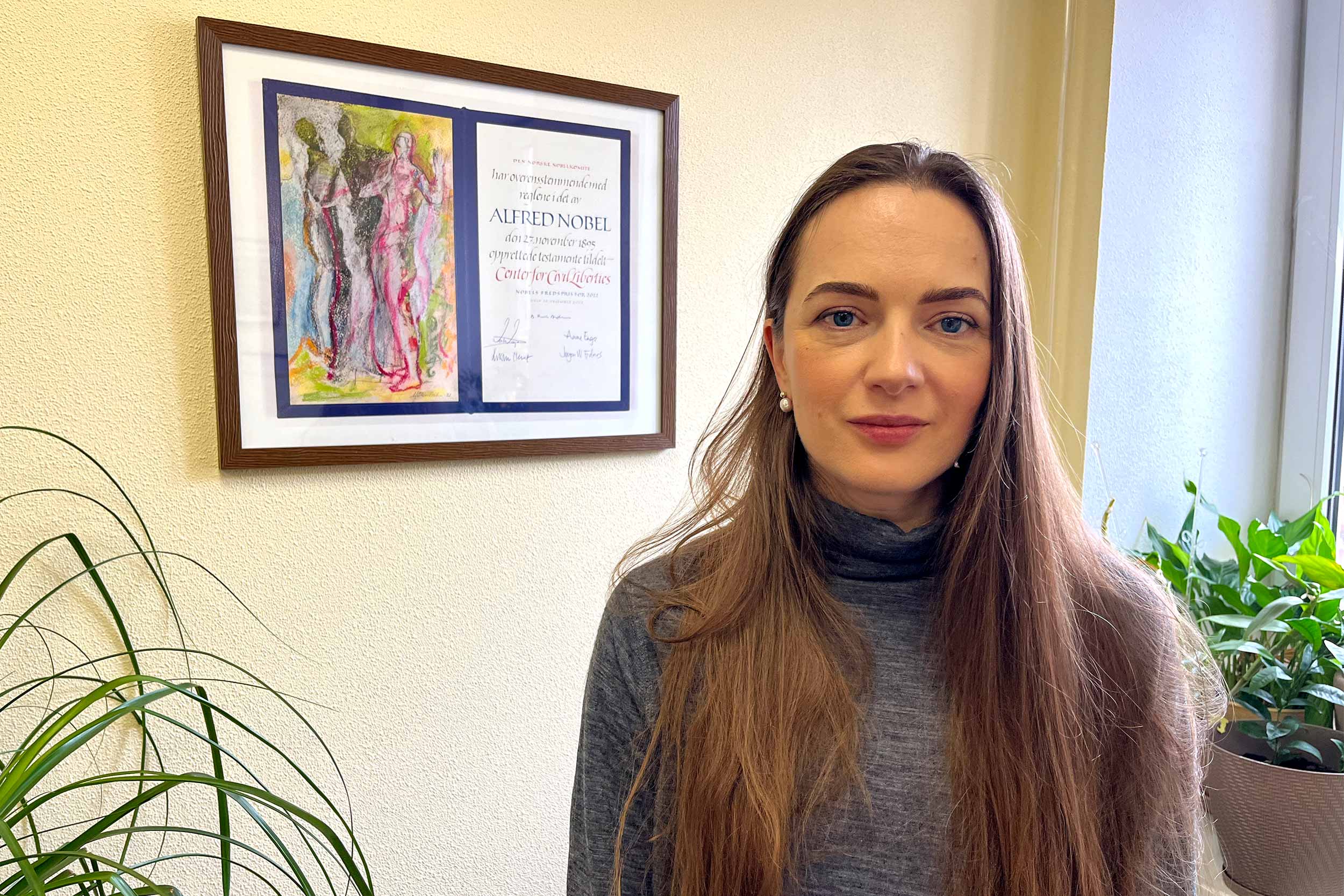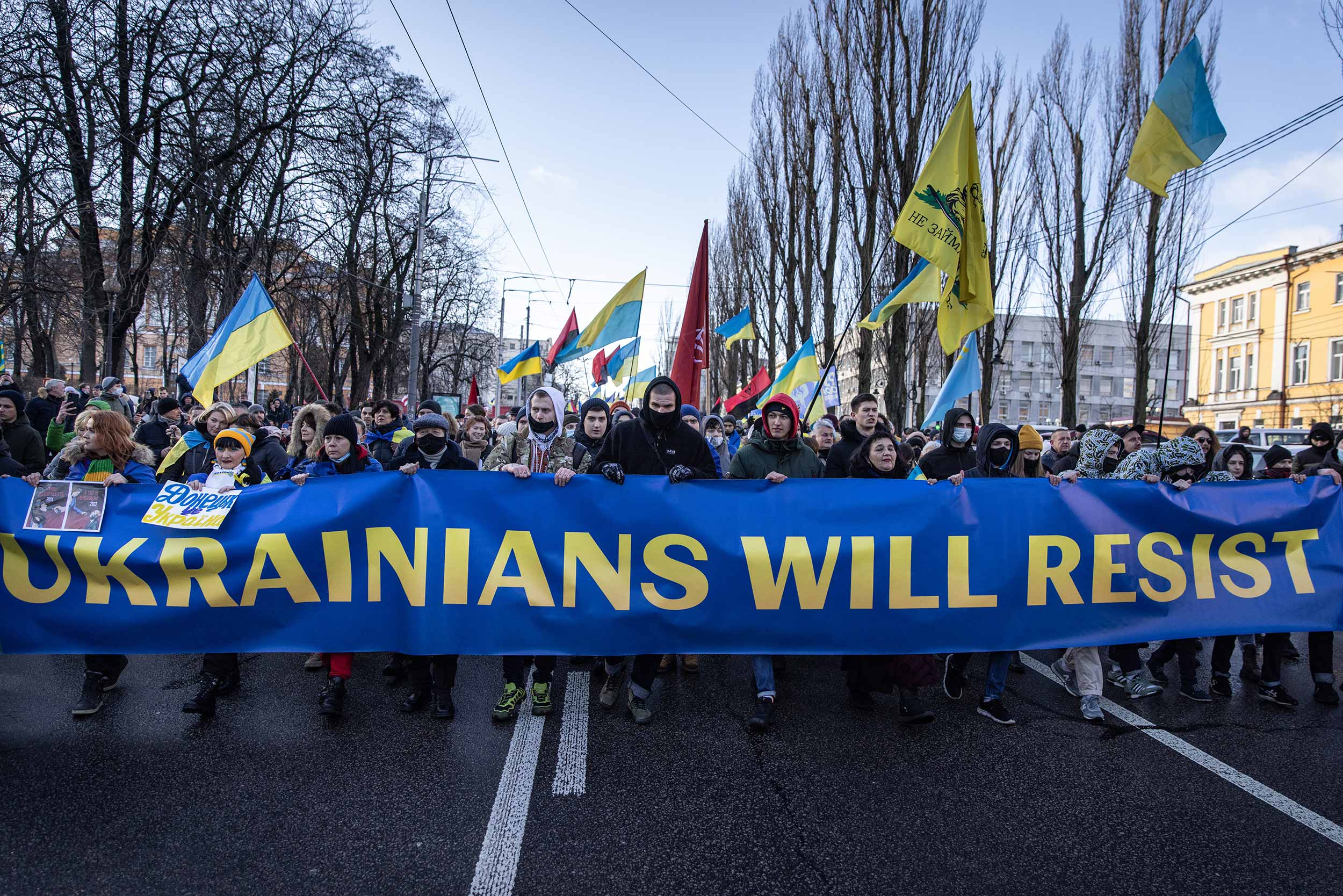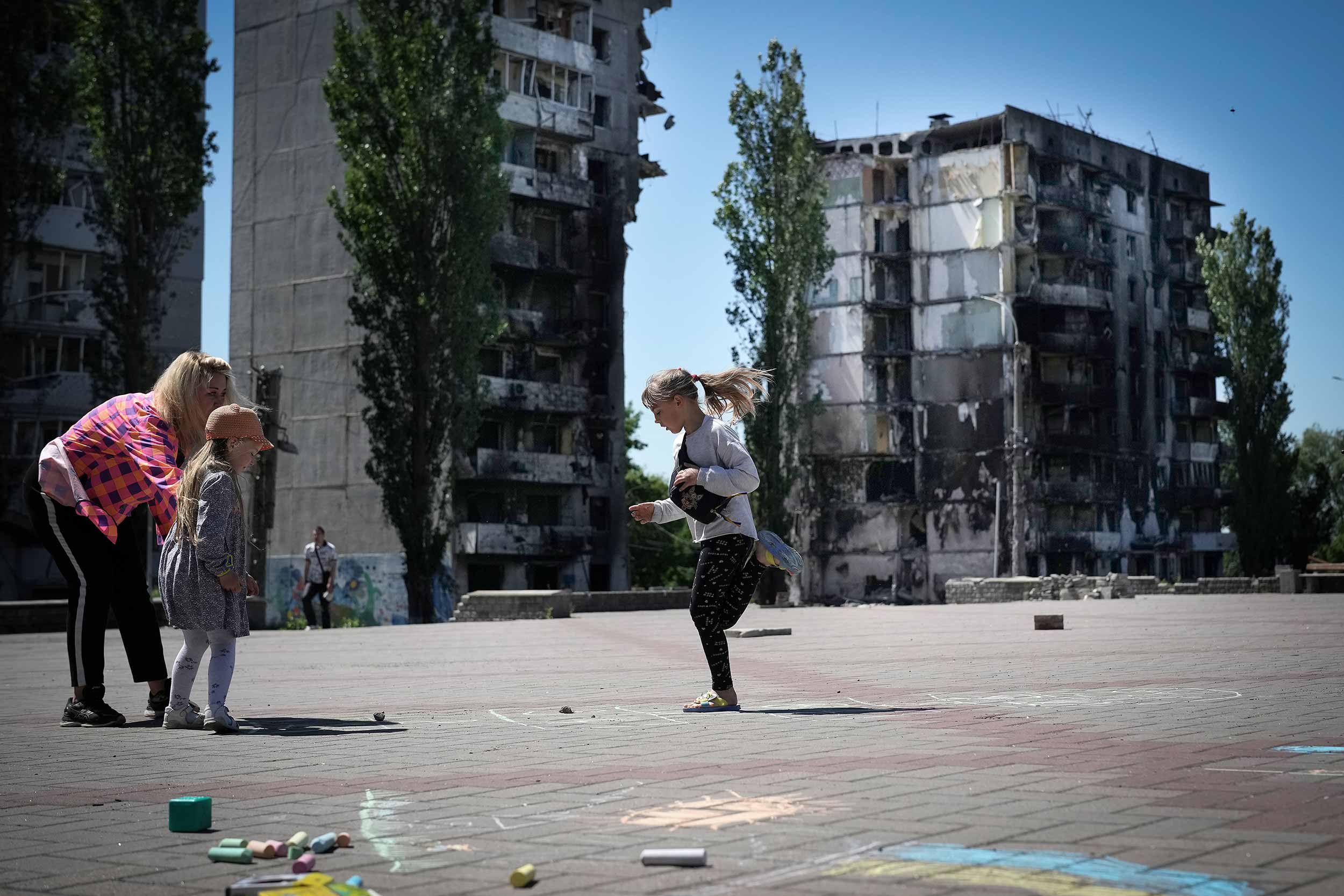Ukraine: Fighting for Human Values
On the second anniversary of the full-scale invasion, Nobel prize-winner calls for world’s continued support and decisive action.
With the war in Ukraine, President Vladimir Putin is not just trying to punish Ukrainians for our choice of democracy and freedom, which we made ten years ago in the Revolution of Dignity. He also aims to convince the world that democracy, rule of law and human rights are fake values, because they cannot protect you during war.
Putin wants to prove that a state with military strength and nuclear weapons can break international order, dictate its rules to the entire world, even change internationally recognised borders. If Russia succeeds and Putin remains unpunished, this will encourage other authoritarian countries to do the same, like China.
The war now marks the second anniversary of the full-scale invasion, and the tenth anniversary of the first steps in the occupation of Crimea. Ukraine is grateful for the support from so many. But we need continued support, and it is time for decisive action.
In February 2014, the organisation I head, the Centre for Civil Liberties (CCL), was the first to send teams to Crimea, Luhansk and Donetsk to document crimes in the occupied territories. These included illegal detention, abduction, sexual violence and the killing of civilians.

With the full-scale invasion in 2022, we faced an unprecedented number of war crimes. We united our efforts with dozens of regional organisations to build a national network. Our goal is to document each criminal episode committed everywhere, even in the smallest settlement. In only these two years, CCL and our partners have documented more than 64,000 suspected war crimes.
This is a huge number, but still only the tip of the iceberg, because Russia uses war crimes as a method of warfare. It is how they aim to win.
This strategy is not just the result of the president or the system. It is the consequence of a component of Russian culture itself. Yes, there are great works of Russian literature, the arts and ballet. But there is also a part of the culture based on imperialism, through which widespread patterns of behaviour have been normalised within society.
Russia’s defeat is critical for Ukraine’s survival and our democratic and European future.
This is a war not just of Putin, then, but of a broader strain of violent Russian imperial culture, based on a belief in the right to invade and kill, seize children and eliminate identity. Small nations do not count and individuals do not matter. Russian glory, restoring the Russian empire, is the goal. War crimes are central to this.
In the liberated territories in Bucha and Irpin and elsewhere around Kyiv, in Izyum and around Kharkiv, and in and around Kherson, our investigators found dead bodies of people scattered around the streets. We found dead bodies in mass graves, men and children with their hands tied behind their backs. We found dead bodies of people in the gardens of their own households. We found dead bodies of people in civilian cars, whole families shot while they were trying to escape from the danger zone.
These people had no weapons, and this is our lesson. This is what happens to Ukrainians when they lack military support. They will come and kill us all.

So first, we need military and financial support. We cannot fight with bare hands. We need people to raise their voices, because we have no time. Time for us results in death on the battlefield, in the occupied territories, in areas deep behind the front. However defined and negotiated in territorial and other terms, Russia’s defeat is critical for Ukraine’s survival, and our democratic and European future. But it will also help Russia, to enable internal forces to appeal to their own people, to show that invading and killing is not OK in the 21st century.
Second, we need to restore international order, demonstrate justice and improve the global approach to conflict prevention. As a lawyer, I say clearly that the law does not work. International humanitarian law sets rules on how armies can kill each other without inflicting enormous suffering. But if we want to stop wars around the world, there is a simple logic: we have to punish the states and their leaders who start such wars in the first place.
In human history, we have only one such precedent, at Nuremberg. All other tribunals have judged people for their war crimes, crimes against humanity or genocide – that is, for killing not according to the rules.
Now we have a historical opportunity to create a special tribunal on aggression and to hold Putin, Belarus President Alexander Lukashenko and the top political leadership and high military command of the Russian state accountable. Such an ad-hoc tribunal will make a huge contribution to preventing war in the future, and we must not wait.

Russian forces have committed horrible war crimes in Chechnya, in Moldova, in Georgia, in Mali, in Syria, in Libya and in other countries, as well as Ukraine. They have never been punished. They believe they can do whatever they want. If we create a special tribunal and start legal proceedings, at least some Russians will begin to have doubts, to understand that this time they will not avoid responsibility. Such doubts will decrease the brutality of human rights violations, which can save many thousands of lives.
Third, and most fundamentally, we must base our political choices on principles of human dignity and freedom. This is ultimately a war between two systems, authoritarianism and democracy. Russia’s sources of support make this clear: North Korea, Iran, Syria, China. What unites them is how they treat human beings, depriving them of basic freedoms and rights.
We must put these human values at the core of everything we do. The fight for Ukraine should be everyone’s fight, because we fight for freedom. We are all human beings, and freedom has no limitation in national borders. People living in democracies are in a minority globally, and if autocracies capture more and more territory, it means more and more freedom will vanish, regardless of where you live.
Two years - and ten years - on in this war, people may be tired of Ukraine. This is understandable in Paris or Berlin or New York, where there are other worries. In Ukraine, we have so much to do, fighting Russia, supporting the displaced and bereaved, rebuilding the country, reforming our democracy - all amid an existential war, and often while taking cover in basements.
These are all enormous tasks which we cannot accomplish alone. But for Ukraine, we do not have the luxury of being tired, because if we are, we will be killed.
Oleksandra Matviichuk is a Ukrainian human rights lawyer who heads the Kyiv-based Centre for Civil Liberties and is a co-recipient of the 2022 Nobel Prize for Peace.
